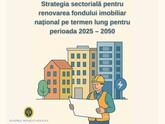
The NBM lowered the base rate applied to the main short-term monetary policy operations by another 0.25 percentage points, from 6.25% to 6% per annum
The Executive Board of the National Bank of Moldova (NBM) adopted this decision at its meeting on September 18. The NBM also reduced interest rates on overnight loans by 0.25 percentage points, from 8.25% to 8% per annum, on overnight deposits from 4.25% to 4%, and on repo operations from 6.5% to 6.25% per annum. At the same time, the National Bank of Moldova kept the reserve requirement ratio applied to funds attracted in Moldovan lei and non-convertible currency at 22% of the calculation base, while the reserve requirement ratio applied to funds attracted in freely convertible currency also remained unchanged at 31% of the calculation base. As noted in the National Bank's statement, its decision to continue easing monetary policy is aimed at keeping inflation in the medium term within ±1.5 percentage points of the 5.0% target, which is considered the optimal level for Moldova's growth and economic development. The reduction in the base rate will stimulate aggregate demand by encouraging consumption and investment. This will gradually manifest itself in lower interest rates on loans, which will facilitate access to financing for both businesses and the population. The National Bank stated that the decision strengthens its position of supporting and stimulating aggregate demand, including by encouraging consumption and investment, balancing the national economy and the current account, with a particular focus on stabilizing inflation expectations. The effects will be gradually transmitted through lower interest rates in the money, deposit, and credit markets, taking into account the temporary delays in the transmission of monetary policy through the interest rate channel. As noted by the NBM, the latest macroeconomic data largely confirm the main assumptions and conclusions reflected in the NBM's forecast published in the August 2025 Inflation Review, which envisages a decline in inflation with its return to the target range in December this year. The NBM stated that it will continue to closely monitor the domestic and external macroeconomic situation, risks and uncertainties related to inflation dynamics in the short and medium term, and that further monetary policy decisions aimed at ensuring and maintaining price stability will depend on the updated inflation forecast. The next meeting of the NBM Executive Committee on monetary policy will take place on November 6, 2025, in accordance with the approved schedule. It should be noted that the NBM last changed the base rate applied to main short-term monetary policy operations on August 7, 2025, lowering it by 0.25 percentage points, from 6.5% to 6.25% per annum. Prior to that, the NBM had raised the base rate applied to main short-term monetary policy operations twice this year. On January 10, the National Bank increased it by 2 percentage points at once, from 3.6% to 5.6% per annum, and on February 5, 2025, it raised it by another 0.9 percentage points, from 5.6% to 6.5% per annum. In 2024, the base rate applied to main short-term monetary policy operations changed three times. Specifically, it was lowered from 4.75% to 4.25% on February 6, to 3.75% on March 21, and to 3.6% per annum on May 7, 2024. // 18.09.2025 — InfoMarket.







